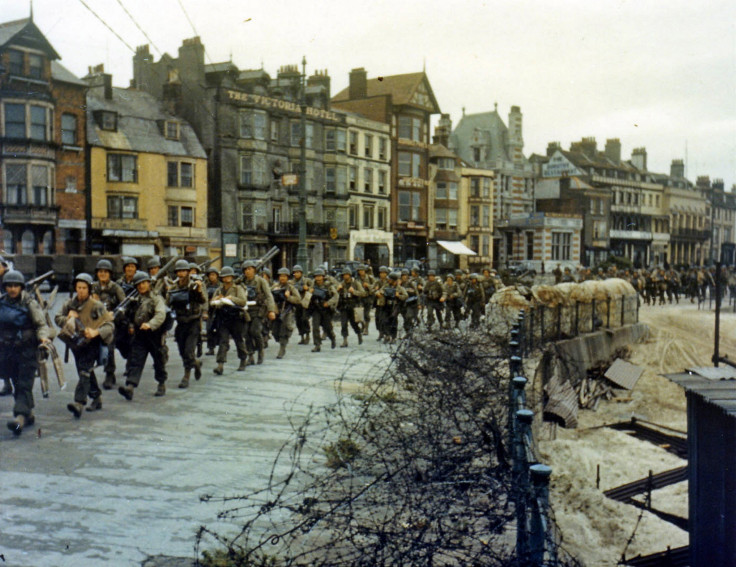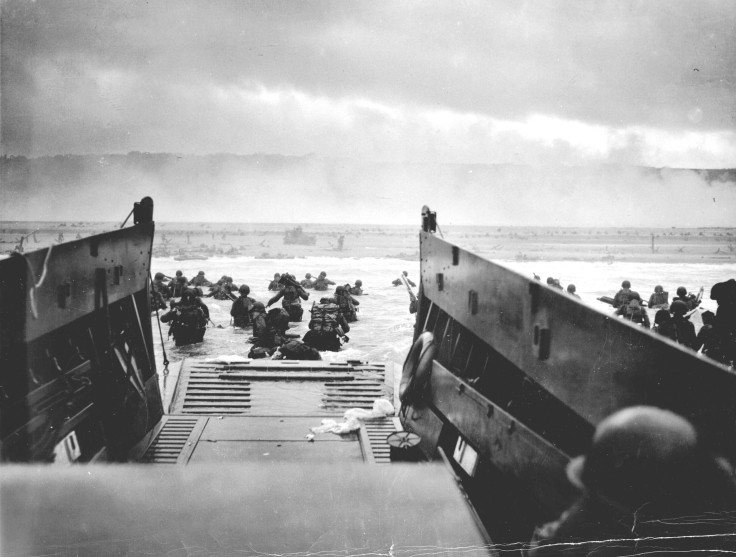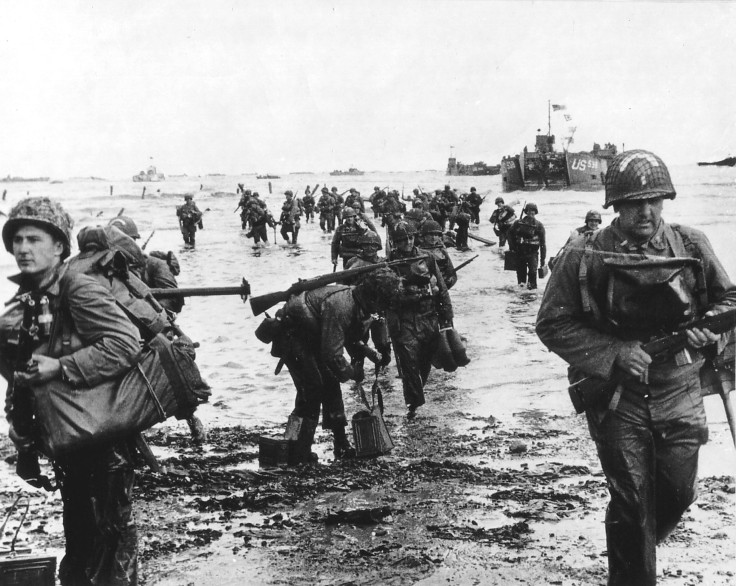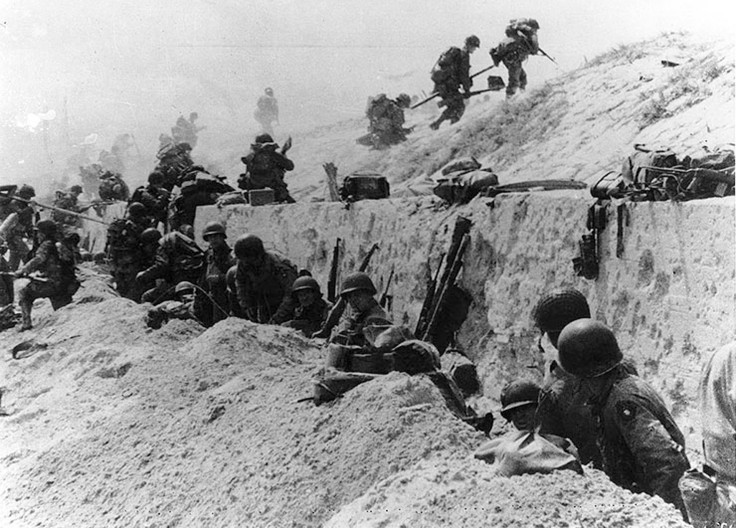D-Day Anniversary 2015: Facts, Quotes About Normandy Invasion At Omaha Beach

Saturday marks the 71st anniversary of D-Day, the historic event in which Allied troops invaded Normandy, France, on June 6, 1944. The fight came to be known as the largest seaborne invasion in history, with more than 160,000 soldiers storming the French coast to take on the Nazi German fighters. About 9,000 Allied soldiers died in the conflict, but 71 years later D-Day is seen as the turning point in the Allied victory in World War II.
The "D" in D-Day, as it was nicknamed, didn't actually stand for anything. It was just a military designation meaning a certain day on the calendar for Operation Overlord, according to History.com.
Under United States General Dwight D. Eisenhower's orders, Operation Overlord was supposed to start June 5, 1944, but bad weather delayed the attack. That morning, Eisenhower told troops "the eyes of the world are upon you" and authorized aircraft, ships and landing craft to leave England for France.

By 6:30 a.m. on June 6, 1944, about 18,000 soldiers were on the ground. The Gold, Juno, Sword and Utah beaches were won quickly by British and Canadian forces, but Omaha Beach proved difficult. “Guys were drowning,” Pvt. Rocco Moretto told NY Daily News last year. “The water was red with blood. Guys getting wounded and killed. I really wasn’t afraid of any of that. I was afraid of drowning. Once I got on land, things were worse, you know?”
By 8:20 a.m. on Omaha Beach, Germans were shooting at American soldiers. The Allies encountered rising tides and obstacles on the beach, and more than 3,000 soldiers couldn't fight anymore, according to DDay-Overlord.com.
The battle continued, and three hours later, the Allies had launched a formidable response, BBC reported. Prime Minister Winston Churchill told members of parliament, "So far the commanders who are engaged report that everything is proceeding according to plan. And what a plan!" Meanwhile, Adolf Hitler reassured his commanders that the invasion was a good thing -- he reasoned that it gave the Nazis access to the Allied forces.
But near Normandy, the Allies continued to advance against the Germans, with more than 156,000 troops on shore by the end of the day. Up to 12,000 Allies and 9,000 Germans were killed, according to the National World War II Museum. The Allies went on to liberate Bayeux on June 7.

Since then, D-Day has been hailed as the beginning of the end of the war by world leaders. Here are a few of their quotes about the invasion:
"Sixty-five years ago in the thin light of gray dawn, more than 1,000 small craft took to a rough sea on a day that will be forever a day of bravery. On that June morning the young of our nations stepped out on those beaches below and into history. As long as freedom lives their deeds will never die." — former British Prime Minister Gordon Brown
"They fight not for the lust of conquest. They fight to end conquest. They fight to liberate." — former U.S. President Franklin D. Roosevelt
"The 6th June is not a day like others: it is not just the longest day or a day to remember the dead, but a day for the living to keep the promise written with the blood of the fighters, to be loyal to their sacrifice by building a world that is fairer and more human." — French President Francois Hollande
"It was unknowable then, but so much of the progress that would define the 20th century, on both sides of the Atlantic, came down to the battle for a slice of beach only 6 miles long and 2 miles wide." — U.S. President Barack Obama
"It is difficult to understand the courage it took to advance through minefields and barbed wire under fire from mortars and machine-guns in order to punch through Hitler’s Atlantic Wall, and yet that is exactly what many Canadians did." — Canadian Prime Minister Stephen Harper
"We know that progress is not inevitable. But neither was victory upon these beaches. Now, as then, the inner voice tells us to stand up and move forward. Now, as then, free people must choose." — former U.S. President Bill Clinton

© Copyright IBTimes 2024. All rights reserved.





















